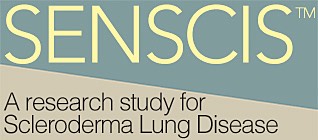Results from a new global survey of 152 people living with idiopathic pulmonary fibrosis (IPF) showed that while a majority of these patients have been involved in decisions regarding their treatment, ample opportunity exists for improvement of the quality and inclusiveness of dialogue between patients and healthcare professionals.
Findings of the survey, sponsored by Boehringer Ingelheim and designed to provide insights into IPF and the realities of living with the condition, were released on Feb. 28 to coincide with Rare Disease Day, whose 2017 theme was “research.”
Although the survey confirmed that an encouraging two out of three (64 percent) of IPF patients have participated in determining the appropriate IPF treatment for them, nearly one out of every three patient respondents (30 percent) reported no involvement at all in discussions and decision-making pertaining to their treatment.
“It is vital that IPF patients are actively involved in the treatment decisions that affect them,” said Liam Galvin, secretary of the European Idiopathic Pulmonary Fibrosis & Related Disorders Federation (EU-IPFF), in a press release. “Open discussion about the lifestyle needs and priorities of patients is key to making the right choice of therapy that can slow the progression of IPF and other options that could assist with its symptoms and management.”
The new findings of the “Boehringer Ingelheim Think of Everything Global Patient Survey 2016” expand on insights from a 2015 global survey of more than 400 pulmonologists. Results of that study showed that while patients and their physicians were generally in agreement on one major key treatment priority — prolonging maintenance of lung function — there was not as much agreement regarding other IPF treatment priorities.
In addition to sustaining lung function for as long as possible, IPF patients also considered important measures to reduce the likelihood of sudden worsening and finding medications with manageable side effects. However, the survey found that physicians were more inclined to emphasize the importance of treatments that enable patients to continue normal day-to-day activities as long as possible, and a treatment’s effectiveness independent of the stage of disease development, as their priorities in choosing IPF therapies.
This partial difference regarding potentially competing priorities is highlighted by survey analysts as the most important potential benefit of open dialogue between IPF patients and their physicians.
The 2016 survey revealed that as many as one in every three patients who were involved in the treatment decision-making process noted that after arriving at agreement about appropriate treatment choices for their IPF, further discussion was not really required and they ended up following their doctor or nurse’s recommended treatment protocols.
 “IPF can make a patient feel their world has turned upside-down, and they may want to leave treatment decisions to their doctor,” said Dr. Marlies Wijsenbeek, a pulmonologist at Erasmus MC in The Netherlands. “It is important that patients engage in discussion. This provides their doctor with relevant information so that the right decision is made at the right time on the appropriate treatment option that best suits their needs. This applies both for medication as well as other non-medical support that may be of benefit.”
“IPF can make a patient feel their world has turned upside-down, and they may want to leave treatment decisions to their doctor,” said Dr. Marlies Wijsenbeek, a pulmonologist at Erasmus MC in The Netherlands. “It is important that patients engage in discussion. This provides their doctor with relevant information so that the right decision is made at the right time on the appropriate treatment option that best suits their needs. This applies both for medication as well as other non-medical support that may be of benefit.”
As part of its research commitment to finding ways of transforming fibrosis lung diseases from fatal illnesses to chronic, treatable ones, Boehringer Ingelheim is currently enrolling patients in the SENSCIS Study – (Safety and Efficacy of Nintedanib in  Systemic Sclerosis), which the company says is the largest clinical trial to date in people with systemic sclerosis who have also developed interstitial lung disease (SSc-ILD).
Systemic Sclerosis), which the company says is the largest clinical trial to date in people with systemic sclerosis who have also developed interstitial lung disease (SSc-ILD).
Ofev (nintedanib) has been approved in the U.S. and Europe for treatment of IPF. While SSc-ILD shares similar characteristics with IPF, Ofev has not yet been approved for SSc-ILD. People diagnosed with SSc-ILD may be eligible to participate in the SENSCIS trial. For more information about eligibility and enrolment, visit https://scleroderma.researchstudyinfo.com.
According to published data cited by Boehringer Ingelheim, IPF is estimated to affect approximately 3 million people worldwide, with a median life expectancy after diagnosis of approximately two to three years.
The direct cause of IPF is unknown (idiopathic), although researchers have succeeded in identifying certain key factors associated with the development of fibrotic disease, such as exposure to environmental pollutants and cigarette smoking. Certain medicines can also cause lung fibrosis. Some viral infections, genetics, and GERD (gastro-oesophageal reflux disease) may also increase IPF risk. Treatment of IPF is currently focused primarily on minimizing the incidence of and managing acute exacerbations.
A video on IPF treatment discussions can be viewed at this link.
An infographic of the 2016 patient survey outcomes can be found here.

